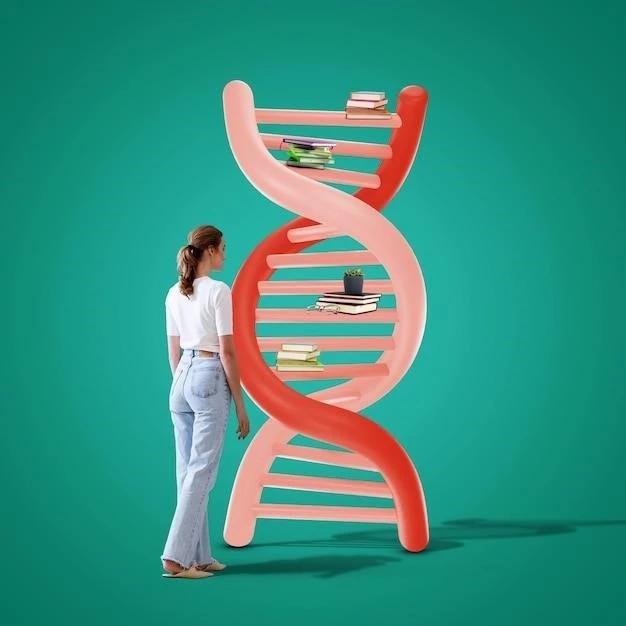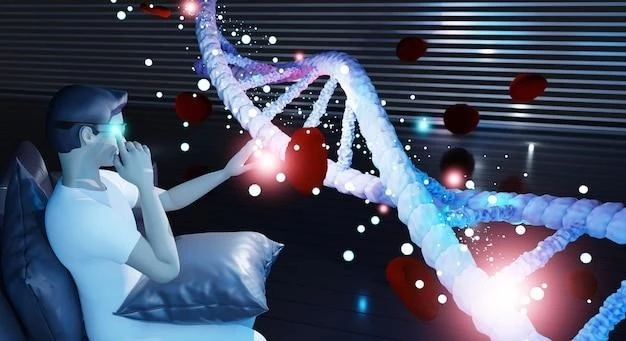Understanding Chromosome 9 Ring Syndrome
Causes and Symptoms of Chromosome 9 Ring Syndrome
Diagnosis and Treatment Options for Chromosome 9 Ring
Understanding the Genetics of Chromosome 9 Ring Disorder
Managing Developmental Delays in Chromosome 9 Ring Patients
Supportive Care for Individuals with Chromosome 9 Ring
Prognosis and Long-Term Outlook for Chromosome 9 Ring Syndrome
Research Advances in Chromosome 9 Ring Disorder
Coping Strategies for Families Affected by Chromosome 9 Ring
Causes and Symptoms of Chromosome 9 Ring Syndrome
Chromosome 9 Ring Syndrome is a rare chromosomal disorder caused by a ring-shaped chromosome 9. This anomaly can lead to a variety of physical and developmental symptoms. Common symptoms include⁚
- Low birth weight
- Developmental delays
- Distinct facial features such as a small head (microcephaly)
- Heart defects
- Growth delays
- IQ below average
It’s essential to consult a medical professional for a proper diagnosis if you notice any of these symptoms in yourself or a loved one. Early detection can help in managing the condition effectively and improving the quality of life for individuals with Chromosome 9 Ring Syndrome.
Diagnosis and Treatment Options for Chromosome 9 Ring
Diagnosing Chromosome 9 Ring Syndrome often involves genetic testing through techniques like karyotyping to identify the ring-shaped chromosome 9. Additionally‚ imaging studies and physical examinations can help assess associated symptoms.
Treatment for Chromosome 9 Ring Syndrome is mainly focused on managing symptoms and providing supportive care. This may include⁚
- Early intervention programs for developmental delays
- Heart defect surgeries if necessary
- Growth hormone therapy for growth delays
- Special education programs for learning difficulties
Collaboration with a multidisciplinary team of healthcare professionals is crucial to tailor treatment plans to the individual’s specific needs. Regular follow-ups and monitoring are essential to track progress and optimize care for individuals with Chromosome 9 Ring Syndrome.
Understanding the Genetics of Chromosome 9 Ring Disorder
Chromosome 9 Ring Disorder is a chromosomal abnormality where the ends of chromosome 9 fuse together to form a ring. This genetic mutation can result in various health issues and developmental delays. Understanding the genetics of this disorder is crucial for proper management and care.
Genetic counseling can help individuals and families affected by Chromosome 9 Ring Disorder understand the inheritance pattern and the associated risks. It can also provide insights into the chances of passing the condition to future generations.
Advancements in genetic testing techniques have improved the accuracy and efficiency of diagnosing Chromosome 9 Ring Disorder. By unraveling the genetic components of this syndrome‚ researchers aim to develop targeted therapies and interventions to enhance the quality of life for those affected.
Managing Developmental Delays in Chromosome 9 Ring Patients
Managing developmental delays in individuals with Chromosome 9 Ring Syndrome requires a comprehensive approach involving healthcare providers‚ therapists‚ educators‚ and caregivers. Here are some strategies to support and enhance development⁚
- Early intervention programs focusing on speech‚ physical‚ and occupational therapy
- Individualized education plans (IEPs) tailored to address learning challenges
- Engagement in social activities to promote social skills and interaction
- Regular monitoring of developmental milestones to track progress
- Creating a supportive and stimulating environment at home and in educational settings

By implementing these strategies and collaborating closely with professionals‚ families can help individuals with Chromosome 9 Ring Syndrome reach their full potential and navigate developmental challenges effectively.
Supportive Care for Individuals with Chromosome 9 Ring
Providing supportive care for individuals with Chromosome 9 Ring Syndrome is essential to enhance their overall well-being and quality of life. Here are key aspects of supportive care⁚
- Regular medical check-ups to monitor health status and address any emerging issues promptly
- Access to specialists such as geneticists‚ developmental pediatricians‚ and therapists for comprehensive care
- Emotional and social support to help individuals cope with challenges and build resilience
- Assistive devices and technologies to facilitate daily activities and promote independence
- Educational resources and guidance for families on navigating the complexities of the syndrome
By creating a supportive environment that addresses both medical and emotional needs‚ individuals with Chromosome 9 Ring Syndrome can thrive and lead fulfilling lives. Collaboration with healthcare professionals and support networks is key to ensuring the best possible care and outcomes.
Prognosis and Long-Term Outlook for Chromosome 9 Ring Syndrome
The prognosis for individuals with Chromosome 9 Ring Syndrome varies depending on the severity of symptoms‚ additional health issues‚ and the effectiveness of interventions. While there is no cure for the syndrome‚ early diagnosis and appropriate management can significantly impact long-term outcomes.
With access to multidisciplinary care‚ supportive therapies‚ and ongoing monitoring‚ many individuals with Chromosome 9 Ring Syndrome can lead meaningful and fulfilling lives. It’s important for families and caregivers to maintain open communication with healthcare providers‚ seek necessary support‚ and stay informed about new developments in the field.
Long-term outlooks are optimistic when individuals with Chromosome 9 Ring Syndrome receive consistent and coordinated care that addresses their unique needs. By focusing on holistic well-being and maximizing individual potential‚ the prognosis for those with the syndrome can be improved.
Research Advances in Chromosome 9 Ring Disorder
Ongoing research into Chromosome 9 Ring Disorder is essential to deepen our understanding of this rare condition and explore new treatment options. Recent advancements in the field include⁚
- Genetic sequencing technologies that enable more precise diagnosis and identification of genetic variations
- Stem cell research for potential regenerative therapies to address developmental delays and organ abnormalities
- Clinical trials to evaluate the efficacy of targeted interventions and therapies specific to Chromosome 9 Ring Syndrome
- Collaborative studies to investigate the impact of genetic modifiers on the severity of symptoms and long-term outcomes
By supporting research efforts and clinical trials‚ individuals affected by Chromosome 9 Ring Syndrome can benefit from innovative approaches and potentially improved treatment options. Staying informed about the latest research findings and participating in relevant studies can contribute to advancements in managing and understanding this complex genetic disorder.
Coping Strategies for Families Affected by Chromosome 9 Ring
Coping with the challenges of Chromosome 9 Ring Syndrome can be overwhelming for families. Here are some valuable strategies to help families navigate the journey⁚
- Educate Yourself⁚ Learn about the syndrome‚ available resources‚ and support networks to empower yourself in decision-making.
- Build a Support System⁚ Connect with other families facing similar situations for guidance‚ empathy‚ and shared experiences.
- Practice Self-Care⁚ Take time for yourself to recharge‚ seek professional help if needed‚ and prioritize your mental and physical well-being.
- Set Realistic Goals⁚ Focus on small achievements‚ celebrate progress‚ and adapt to the evolving needs of your loved one.
- Advocate for Your Loved One⁚ Be a strong advocate for appropriate care‚ access to services‚ and inclusive opportunities for your family member with Chromosome 9 Ring Syndrome.
By implementing these coping strategies and seeking support when needed‚ families can navigate the challenges of Chromosome 9 Ring Syndrome with resilience‚ compassion‚ and strength.
